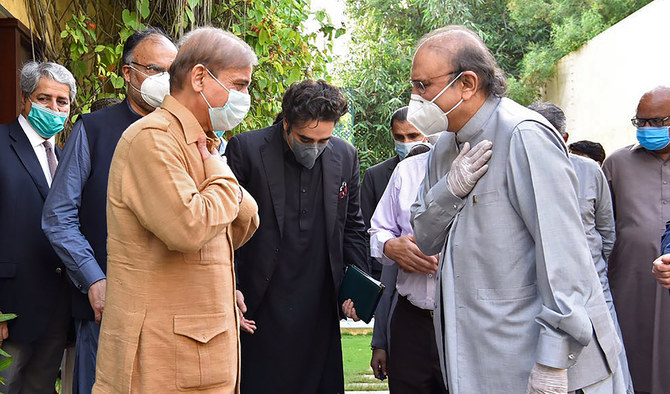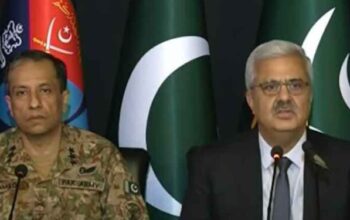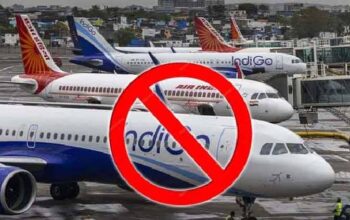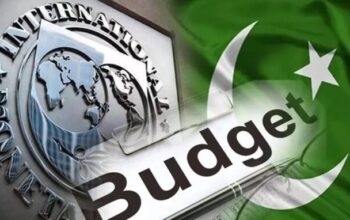By Staff Reporter
ISLAMABAD: Pakistan’s election commission announced on Friday that the country would hold a presidential election on March 9, months after the end of the term of the incumbent, Arif Alvi, who presided over a tumultuous period of political and economic instability.
The commission said that candidates could file their nomination papers by Saturday with presiding officers in Islamabad and the four provincial capitals. A returning officer appointed by the commission would scrutinize the papers by March 4 and candidates could withdraw their nominations by March 5
. The president of Pakistan is elected by an electoral college consisting of members of both houses of parliament and the provincial assemblies.
The coalition alliance, led by the Pakistan Muslim League-Nawaz (PML-N) and the Pakistan Peoples Party (PPP), has nominated Asif Ali Zardari, a former president and the husband of the late prime minister Benazir Bhutto, as its candidate. Zardari served as president from 2008 to 2013.
The Pakistan Tehreek-e-Insaf (PTI) of former prime minister Imran Khan has not yet announced its candidate.
The presidential election is expected to be one-sided, though none of the parties has a clear majority in the electoral college. Zardari is expected to win the election easily, as the coalition has a majority.
Alvi, a close ally of Khan, took office in September 2018, after PTI won a general election that was marred by allegations of military interference and vote rigging. His term officially ended in September last year, but he has continued to serve as president until a successor is elected, as per the constitution.
Alvi’s tenure witnessed a series of political upheavals, including the ouster of Khan in a no-confidence vote in April 2022, after he lost the support of the powerful military.
Next Prime Minister
The country will head to the ballots on Sunday to elect the next prime minister and Shehbaz Sharif, 72, of PML-N is poised to become the next leader after a tense and fractured national election that saw his coalition edge out a rival bloc backed by the jailed Imran Khan.
The election, due on Sunday, will throw a split verdict, with independent candidates supported by Khan’s PTI party 93 seats, followed by Sharif’s PMLN securing 75, and the PPP 54.
The PMLN and the PPP, two longtime rivals, formed a coalition to claim power, with one of the PTI-backed legislators also defecting to Sharif’s party. Backed by four smaller parties and some independents, the alliance claims to form government in the 336-member National Assembly, where a political party or alliance needs 169 seats to assume power.
Sharif served as premier for 16 months after Khan lost a parliamentary vote of confidence in 2022. His coalition is unlikely to face any challenge from the SIC group, a loose alliance of PTI and independent candidates, who have picked PTI leader Omar Ayub Khan as their nominee for the 23rd prime minister of Pakistan.
Khan, 49, belongs to a political family and has served as a federal minister under different governments. His grandfather Ayub Khan was Pakistan’s first military dictator for over a decade from 1958 to 1969. His father Gohar Ayub Khan, who also served in the army, joined the PMLN upon retirement and became the speaker of the National Assembly in 1990.
Khan himself was a member of the PMLN before joining the PTI in 2018. After the PTI lost power in 2022, He along with hundreds of his party members faced a massive state crackdown. A series of cases were filed against him and other PTI leaders, forcing him to go into hiding.
National Assembly Speaker
The coalition alliance of PPP and PML-N on Friday won several key elections for the posts of speaker, deputy speaker, and chief minister in the parliament and the provinces.
The coalition has secured the posts of speaker and deputy speaker in the National Assembly, the lower house of parliament. Sardar Ayaz Sadiq, a member of the PML-N, secured 199 votes out of 290 cast, defeating his rival, Malik Muhammad Amir Dogar, a PTI candidate from the Sunni Ittehad Council (SIC).
Sadiq, who was the speaker from 2013 to 2018, took the oath of office administered by the outgoing speaker, Raja Pervaiz Ashraf of PPP. Sadiq then presided over the election of the deputy speaker, Syed Ghulam Mustafa Shah, also a member of the PPP, who won 197 votes against 92 for Junaid Akbar, a candidate of the SIC.
The speaker and the deputy speaker are elected for a five-year term and are responsible for maintaining order and decorum in the house, as well as conducting the legislative business.
Sadiq, in his first speech as the speaker, said he would try to address the grievances of the opposition parties, especially those of Khan’s PTI, which has been protesting against the results of the Feb. 8 general elections, alleging widespread fraud and rigging.
Khan’s supporters, many of whom ran as independent candidates after the PTI lost its party symbol in a legal battle before the polls, joined the SIC to form the largest bloc in the house.
Dogar, the SIC candidate for the speaker’s post, in his speech, accused the government of stealing the PTI’s mandate and manipulating the election results.
“Our eighty seats were stolen, and had they not been stolen, the PTI would have been the single largest party in the assembly,” Dogar said, urging the speaker to play his role to get the PTI’s “stolen mandate” back.
Balochistan Chief Minister
The coalition parties also claimed the posts of chief ministers in three of the four provinces, Balochistan, Sindh and Punjab, while the PTI retained its hold on Khyber Pakhtunkhwa.
In Balochistan, the country’s largest and most restive province, Sarfraz Bugti, a former senator and interim interior minister, was elected as the chief minister unopposed, after no other candidate filed nomination papers for the post.
Bugti, who belongs to the PPP, is a prominent tribal leader and a former home minister of Balochistan, who oversaw a controversial military operation against the separatist insurgents in the province.
“I am thankful to President Asif Ali Zardari, Chairman Bilawal Bhutto Zardari, my party PPP, and the people of Dera Bugti who allowed me to serve the people of Balochistan,” Bugti said in a tweet. “May Allah guide me and help me to do justice with this heavy responsibility.”
He is expected to take the oath of office on Saturday at the Governor House in Quetta, the provincial capital.
Khyber Pakhtunkhwa Chief Minister
In Khyber Pakhtunkhwa, the province bordering Afghanistan, Ali Amin Gandapur, a leader of the PTI party, was elected as the chief minister.
Gandapur, who had served as a federal minister in the previous PTI government, won 90 votes in the provincial assembly, defeating Ibadullah Khan of the PML-N, who secured 40 votes. He had contested the February 8 general elections on both a national and a provincial seat from his hometown of Dera Ismail Khan, and won both.
The PTI had emerged as the largest party in Khyber Pakhtunkhwa, securing 65 out of 124 seats, and formed a coalition government with the support of some smaller parties.
Gandapur was also among the PTI leaders who were arrested and jailed in the aftermath of the May 9 riots, when thousands of PTI supporters clashed with the security forces, demanding the release of Khan, who was briefly arrested on corruption charges. “We do not want to carry out politics of revenge,” he said. “But we also know how to snatch our rights.”
Copyright © 2021 Independent Pakistan | All rights reserved




